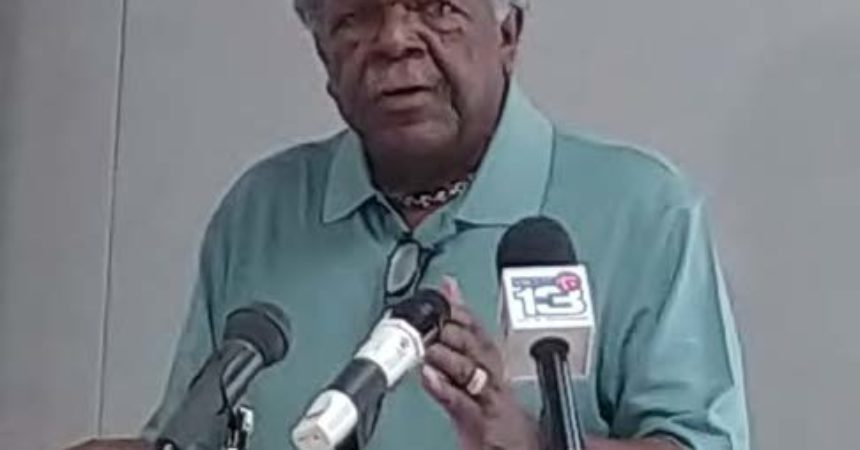
Speakers give history lesson at Lecture Series opener
By St. Clair Murraine
Outlook Staff Writer
Historian Mary May did something amazing inside a meeting room at Leroy Collins Library – she covered the first 100 years of Tallahassee’s history in about 11 minutes.
She had a disclaimer, though, as she warned that what she was about to present was “more show than tell.”
May was the opening act for the Tallahassee Living History Lecture Series. The hour-long program last Monday morning was also chuck full of Black history, especially relating to slavery in the area and eventually emancipation.
“I thought it was fascinating to learn that we are not so far removed from slavery and where we came,” said Lavonia Jones, who stopped by on a lunch break. “It’s amazing that they (facilitators) could go as far back as they did as far as understanding our history.
“It creates a kind of feeling to know where you came from and who you are.”
As short as her presentation was, May passed on a lot of information while she was at the dais. Using a slide presentation to go with her quick narrative, she talked about the Capitol, the first hotels and locations of some building that are now landmarks.
The Living History series is the brainchild of City Commissioner Dianne Williams-Cox. The presentation by May and Hunter Hill’s recollection of the early years of emancipation that followed are vital stories to tell, she said.
“When we leave here, we need to go tell it,” Williams-Cox said. “We need to tell our children. This is a part of our rich history and we need to celebrate it.”
Future Lecture Series will be held each quarter, Williams said.
Before this one was over, the audience learned plenty about the “hidden culture” surrounding emancipation. Hill, whose family celebrates emancipation annually, told the story of a 164-year-old emancipation drum beat that still resonates today.
As if she needed to vouch for the emancipation-related drum beat Gloria Jefferson Anderson got the audience going with recording of the drums from a cell phone.
A self-proclaimed country girl, Jefferson Anderson went on to tell part of her story about growing up as the great grand daughter of a slave.
Hill, a retired architect whose work is featured in the FAMU Black Achieves, delved into a lot of the details surrounding emancipation and how it was celebrated after slaves in Tallahassee found out on May 20, 1865 that President Abraham Lincoln had issued a proclamation for their freedom.
Hill got a reaction from the audience when he mentioned the emancipation celebration, which came two years after the proclamation.
“The first celebration was at a place called Bull Pond,” Hill said. “Two thousand showed up for the celebration. Bull Pond it still there. That’s Lake Ella”
Suddenly, there was a gasp from the audience.
Eventually the celebration was moved to Winthrop Plantation, where it was held for 58 years. The celebration later was moved to his grandfather’s property, Hill said.
Hill didn’t leave the stage before dishing out some astonishing statistics.
For instance, he said, there were 61,000 slaves in Florida where slavery was a multi-million dollar business. Slaves also cut 15 bales of cotton and it 1860 they’d picked 4 million bales.
Althemese Barnes, director of Riley House Museum, praised Hill for presenting some of the little-now facts on slavery. She also said the story of slavery should always be presented with every little detail.
“We would have a better understanding; race and contribution-wise that everybody brings to the table,” Barnes said.
Billy Davis, a history buff, said the presentations left him eager for the next lecture.
“I definitely see a need for more of it,” he said. “I would have liked to see a lot more of the youths. There was stuff that I didn’t know even as a kid growing up Tallahassee.
“It was informative but it would have helped to have a younger audience here.”
Williams-Cox echoed Davis’ sentiments.
“I wanted to make sure that we don’t lose this history,” she said. “We’ve got people like Mrs. Barnes, but we need to bring our young people along.
“They are not understanding where we came from and why we have such a proud tradition. I’m hoping that learning this (history) will stop us from shooting, killing robbing and hurting one another.”





